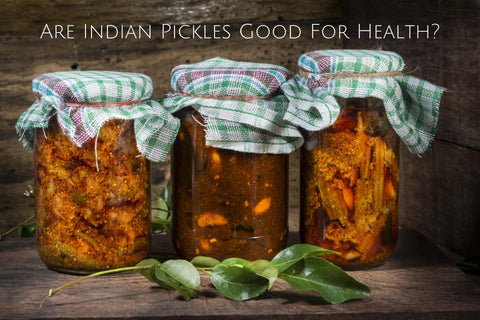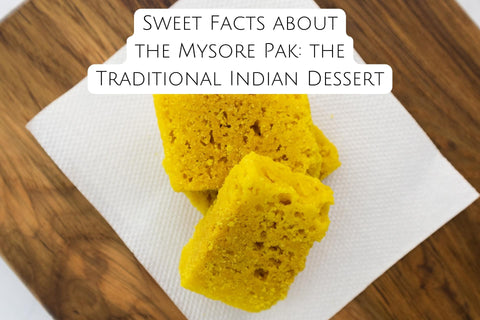Indian pickles can be a tasty addition to your meals, but it's important to be mindful of how they are prepared and consumed. Indian pickles can be both good and bad for health, depending on how they are prepared and consumed.
Indian pickles are often made with a mix of spices, salt, oil, and sometimes sugar. The ingredients used in Indian pickles can vary depending on the region and the type of pickle. Some of the commonly used ingredients include mango, lemon, garlic, ginger, mustard seeds, fenugreek seeds, and chilli peppers.
The Magical Aspects of Indian Pickles
Indian pickles, also known as achar, are an essential part of Indian cuisine and culture. They are not only a delicious accompaniment to meals but also offer various health benefits and have a long shelf life.
- One of the magical aspects of Indian pickles is their long shelf life. They can be stored for months or even years, making them a perfect food item for long journeys or for times when fresh vegetables or fruits are not available.
- Another magical aspect of Indian pickles is their ability to add a burst of flavour to any meal. They can be enjoyed as a condiment with almost any dish, from rice and lentils to bread and meat. The combination of spices, salt, and oil used in Indian pickles not only enhances the flavour of the dish but also aids in digestion.
- In addition to their taste and long shelf life, Indian pickles also offer various health benefits. The ingredients used in Indian pickles have anti-inflammatory, antimicrobial, and antioxidant properties. For example, turmeric, a commonly used spice in Indian pickles, has anti-inflammatory properties and is believed to improve brain function and reduce the risk of heart disease.
Health Benefits of Indian Pickles in your regular diet
Indian pickles, when consumed in moderation, can offer several health benefits. Here are some potential health benefits of Indian pickles:
-
Probiotics: Some Indian pickles are made by fermentation, which promotes the growth of healthy bacteria that can aid in digestion and boost your immune system. These healthy bacteria are known as probiotics and can improve gut health.

-
Antioxidants: Indian pickles often contain spices and herbs, such as turmeric, ginger, and garlic, which are rich in antioxidants. Antioxidants can protect your body from damage caused by free radicals and reduce the risk of chronic diseases.

-
A flavour ful addition to meals: Indian pickles can add a burst of flavour to meals, making them more enjoyable to eat. This can encourage you to eat more vegetables and fruits, which are important for maintaining a healthy diet.

-
Source of vitamins and minerals: Some Indian pickles are made with fruits and vegetables that are high in vitamins and minerals. For example, mango pickles can be a good source of vitamin C, while garlic pickles can be a good source of selenium.

-
Low-calorie option: Indian pickles can be a low-calorie option for adding flavour to meals. They are often low in calories and can be a healthy alternative to high-calorie condiments like mayonnaise and ketchup.

Preparation methods of Indian pickles
Indian pickles are made using a variety of methods and ingredients, depending on the region, season, and personal preferences. Here are some of the common methods used to prepare Indian pickles:
- Salt and Sun Method: In this method, the vegetables or fruits are cut into small pieces, mixed with salt, and left in the sun for several days. The sun helps to dry out the moisture from the vegetables and fruits, making them more suitable for pickling. After a few days, the vegetables or fruits are washed and mixed with spices, oil, and other seasonings.
- Oil Method: In this method, the vegetables or fruits are mixed with oil, salt, and spices. The oil helps to preserve the pickles and keep them fresh for a long time. Some pickles made with this method may also include vinegar or lemon juice for added flavour .
- Instant Pickling Method: In this method, the vegetables or fruits are quickly cooked or blanched, then mixed with spices, vinegar, and sugar, and served immediately. This method is often used for making quick pickles or for preserving small quantities of vegetables or fruits.
- Fermentation Method: In this method, the vegetables or fruits are mixed with salt and water and left to ferment for several days or weeks. The fermentation process helps to develop the flavour of the pickles and also increases their nutritional value.
Some myths about pickles
Here are some myths about Indian pickles:
- Indian pickles are always spicy: While it is true that many Indian pickles are spicy, not all of them are. Some Indian pickles, such as sweet mango pickles, are made with sugar and are not spicy at all.
- Indian pickles are unhealthy: While some Indian pickles can be high in salt and oil, not all of them are unhealthy. Pickles made with natural ingredients and without added preservatives or artificial colors can be a healthy addition to your diet in moderation.
- Indian pickles are difficult to make: While some methods of making Indian pickles, such as the sun-drying method, can take some time and effort, not all of them are difficult to make. Some Indian pickles, such as instant pickles, can be made quickly and easily with a few simple ingredients.
- Indian pickles are only eaten with Indian food: While Indian pickles are a popular accompaniment to Indian meals, they can be enjoyed with other types of food as well. They can add a burst of flavour to sandwiches, salads, and other dishes.
- Indian pickles all taste the same: There are many different types of Indian pickles, each with its own unique flavour profile. The ingredients used in Indian pickles can vary depending on the region and the type of pickle, resulting in a wide range of flavour s and textures.
Is It Okay To Consume Indian Pickles Everyday?

Consuming Indian pickles every day is not recommended as it can have negative effects on your health. Here are some reasons why:
- High sodium content: Most Indian pickles are high in sodium, which can lead to high blood pressure and other health problems if consumed in excess. Excessive sodium intake can also increase the risk of heart disease and stroke.
- High in sugar and oil: Some Indian pickles may also contain high amounts of sugar and oil, which can lead to weight gain and other health problems if consumed in excess.
- Risk of food poisoning: Homemade Indian pickles that are not properly prepared or stored can lead to the growth of harmful bacteria, which can cause food poisoning and other health problems.
- Not a substitute for fresh fruits and vegetables: While Indian pickles can add flavour to meals, they should not be relied on as a substitute for fresh fruits and vegetables. Fruits and vegetables provide essential nutrients and fiber that are important for maintaining good health.
- May cause digestive issues: Some people may experience digestive issues such as bloating, gas, and diarrhea after consuming Indian pickles due to their high acidity and spicy nature.
Conclusion
In conclusion, Indian pickles are a unique and flavour ful condiment that has been a part of Indian cuisine for centuries. They are made by preserving vegetables or fruits in a mixture of spices, oil, and salt using various methods. While Indian pickles should be consumed in moderation they can offer potential health benefits. Overall, Indian pickles are a delicious and versatile addition to any meal and can help to enhance the overall dining experience.




Comments (0)
There are no comments for this article. Be the first one to leave a message!